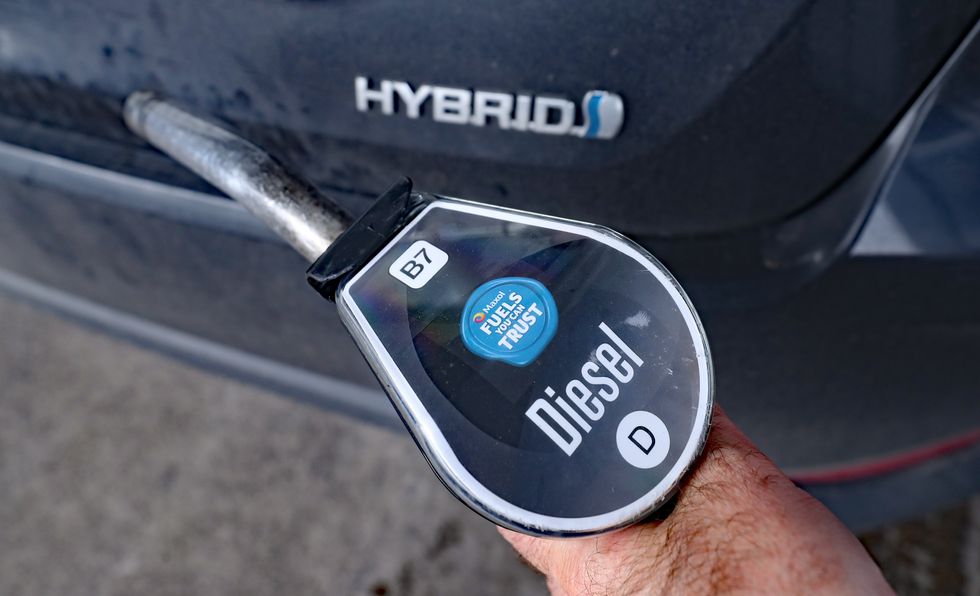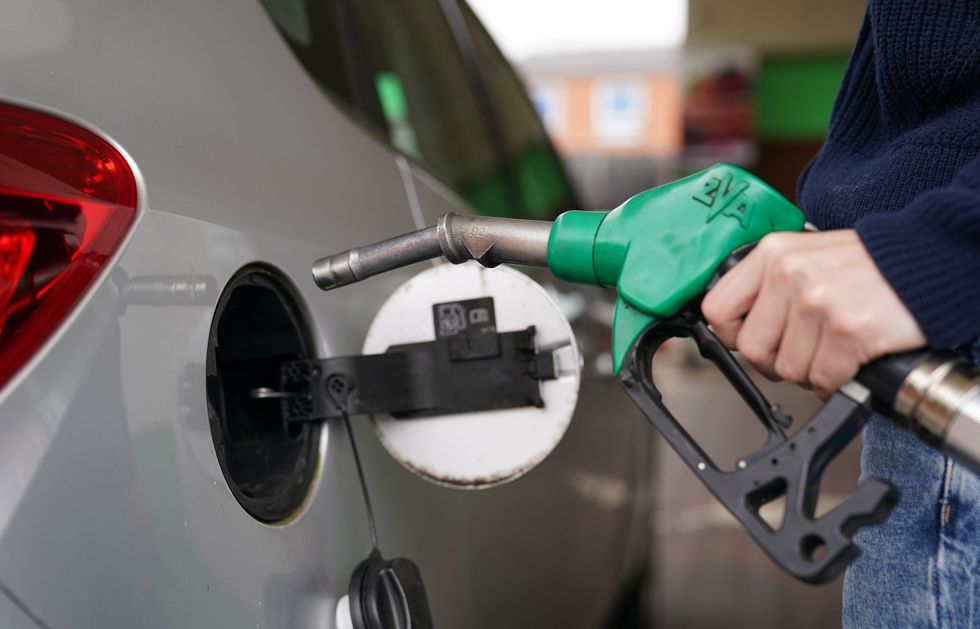Electric vehicles are rapidly gaining popularity in the UK, with a significant shift in consumer sentiment towards greener transport options.
According to EY’s latest Mobility Consumer Index, 59 per cent of UK respondents planning to purchase a vehicle in the next two years expressed a preference for electric or hybrid models.
This marks an increase from 54 per cent in 2023 and slightly surpasses the average across major auto markets surveyed.
The growing interest in EVs comes as buying intent for petrol and diesel vehicles continues to decline. Only 36 per cent of potential buyers now favour internal combustion engine vehicles, down from 41 per cent last year.
Do you have a story you’d like to share? Get in touch by emailing[email protected]
 Petrol and diesel drivers would prefer a hybrid carPA
Petrol and diesel drivers would prefer a hybrid carPAThis trend could prove crucial in supporting the UK’s transition to electric transport, particularly in light of recent challenges to EV demand.
The shift towards EVs is reflected in the breakdown of consumer preferences. EY’s survey revealed that 23 per cent of respondents are most likely to buy a Battery Electric Vehicle next, up from 19 per cent last year.
Hybrid Electric Vehicles remain the most popular choice, with 27 per cent of potential buyers opting for this technology, a slight increase from 25 per cent in 2023.
Plug-in Hybrid Electric Vehicles maintain steady interest, with 10 per cent of respondents considering this option.
In contrast, the preference for Internal Combustion Engine vehicles has dropped notably to 36 per cent, down from 41 per cent in 2023.
Overall, 56 per cent of UK respondents indicated they were either extremely or somewhat likely to purchase a vehicle in the next two years, a significant increase from 45 per cent last year.
This figure represents the highest buying intent among European countries surveyed. Environmental concerns are the leading factor driving increased interest in EVs, with 35 per cent of UK respondents citing this as a key reason for wanting to purchase one.
High fuel prices are another significant motivator, mentioned by 31 per cent of potential buyers. Rising penalties on ICE vehicles, such as additional taxes, were identified by 27 per cent of respondents as a key concern pushing them towards EVs.
David Borland, EY’s UK & Ireland Automotive Leader, commented on these findings: “A particularly interesting finding from this year’s survey is that consumer interest in purchasing petrol and diesel vehicles is declining quite significantly – a trend which could prove a crucial support to the UK’s EV transition, especially in light of the Department for Transport’s intention to revert the ICE sales ban back to 2030.”
Despite growing interest in EVs, several concerns still deter some consumers from making the switch. The top concern is expensive upfront purchase costs, cited by 37 per cent of respondents.
A lack of charging stations is the joint-second most cited concern, mentioned by 23 per cent of respondents. However, this marks a significant improvement from 2023, when 37 per cent cited it as a key deterrent.
Expensive battery replacement has emerged as a new leading issue, also cited by 23 per cent of respondents.
LATEST DEVELOPMENTS:
 New sale of petrol and diesel cars to be banned by 2030PA
New sale of petrol and diesel cars to be banned by 2030PAMaria Bengtsson, Head of Mobility at EY UK, suggests addressing these concerns: “It’s important that policymakers work closely with manufacturers and retailers to help improve perceptions further around all-electric vehicles. Another key challenge will be addressing consumer reluctance around being wholly reliant on charging infrastructure.”
Despite these concerns, 88 per cent of current EV owners considering a new vehicle would likely buy another EV. Physical dealerships continue to play a crucial role in the car buying experience for UK consumers. According to the index, 55 per cent of respondents prefer to purchase a new car from a dealership or showroom.
For used cars, the preference for physical dealerships remains strong, with 49 per cent of respondents favouring this option.